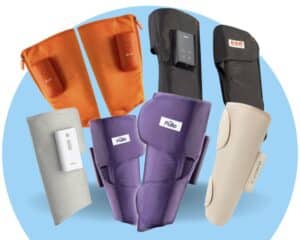연속혈당측정기 종류 원리 가격비교 (연속혈당측정기 추천)
2023년도 말에 국내 혈당측정기 제조사 1위 기업에 해당하는 아이센스(isens)에서 국내 최초로 연속혈당측정기를 출시하였습니다. 원래 우리나라에서 사용하는 연속혈당측정기는 ...
헬스 케어
·
이유즈 종아리 마사지기 내돈내산 후기, 가격, 할인코드 공유 (EUS)
최근에 소유 안마기로 유명한 이유즈(eus)에서도 종아리 마사지기를 새롭게 런칭하였는데요. 경쟁사인 풀리오나 스파알보다 후발주자로 나온 만큼 상당히 많은 ...
헬스 케어
·
권은비 스파알 종아리 마사지기 내돈내산 후기, 2만원 할인코드 (SPAR)
오늘은 권은비 씨가 모델로 활동하면서 유명해진 스파알 종아리 마사지기에 대해서 자세히 정리해보려 합니다. 만약 2만원 할인코드만 필요하신 ...
헬스 케어
·
풀리오 종아리 마사지기 가격 모드 내돈내산 후기는? (Pulio)
이번 시간에는 무선 종아리 마사지기 시장에서 거의 선두주자 격에 해당하는 풀리오 종아리 마사지기에 대해서 정리해보려 합니다. 그리고 ...
헬스 케어
·
발란스핏 종아리 마사지기 가격 효과 내돈내산 후기는? (풀리오 비교)
작년부터 무선 종아리 마사지기가 유행하면서 많은 분들이 관심을 가지시곤 하는데요. 특히나 갓생살기를 하는 2030직장인 여성분들에게 필수템이 되어버린 ...
헬스 케어
·
무선 종아리 마사지기 추천 효과 가격 비교 TOP5 (2024)
최근 다양한 종아리 마사지기 제품들이 출시되면서 수많은 직장인분들이나 주부들에게 필수적인 아이템이 되어가고 있습니다. 게다가 요즘 나오는 대부분의 ...
헬스 케어
·
오므론 혈압계 추천 및 구매가이드 (종류, 가격, 정확도 비교)
가정용 혈압계를 처음 구입하시는 분들에게 가장 많이 추천되는 브랜드는 아무래도 오므론 혈압계일 것입니다. 하지만 오므론 혈압계는 모델이 ...
헬스 케어
·
스파알 포터블 목 어깨 마사지기 원리, 가격, 후기는? (권은비 안마기)
안녕하세요 알프스 파마씨입니다. 최근 스파알에서 혁신적인 목 어깨 마사지기를 출시하면서 정말 많은분들이 불티나게(?) 구입을 하고 계시는데요. 아이즈원 ...
헬스 케어
·
오므론 네블라이저 추천, 종류, 사용법 (100 200 803)
안녕하세요 알프스 파마씨입니다 ^^ 이번 글에서는 네블라이저에 대한 간단한 상식과, 오므론 네블라이저 추천 제품에 대해서 알아보려 하는데요~ ...
헬스 케어
·
네블라이저 약 사용법 및 성분 (벤토린, 풀미칸, 풀미코트, 부데코트)
안녕하세요 알프스 파마씨입니다.^^ 환절기나 겨울철이 찾아오면 기관지가 약한 아이들은 호흡기 질환을 겪고는 합니다. 가벼운 증상이라면 경구용 약을 ...
헬스 케어
·














